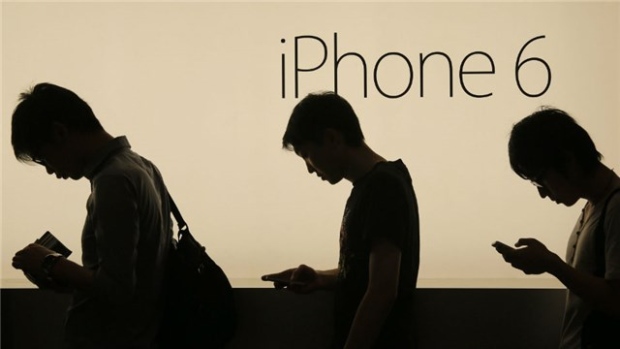Feb 22, 2016
Apple urges U.S. government to form commission on encryption issues
Reuters

Apple Inc (AAPL.O) on Monday urged the creation of a government panel on encryption to help resolve a standoff over national security and data privacy that erupted last week after the technology company refused a U.S. government demand to unlock an iPhone linked to one of the killers in a mass shooting in California in December.
It was the latest move in a public and symbolic showdown between the U.S. government and technology companies, both of which are keen to set a precedent over how far U.S. investigators can dictate tech firms handling of their customers' data.
Apple Chief Executive Tim Cook also sent a letter to employees Monday morning, making clear the company's hardline stance addresses broader issues, not just the phone in question.
"This case is about much more than a single phone or a single investigation," Cook said in the email to employees, seen by Reuters. "At stake is the data security of hundreds of millions of law-abiding people, and setting a dangerous precedent that threatens everyone’s civil liberties."
The U.S. Federal Bureau of Investigation is seeking the company's help to access Syed Rizwan Farook's phone by disabling some of its passcode protections, which the government said are "non-encryption barriers."
The latest volley from Apple followed a highly unusual call with reporters held by senior Apple executives on Friday to respond to the U.S. Department of Justice's motion asking Apple to comply with a judge's order to unlock Farook’s county-owned work phone.
But prosecutors acknowledged that their order, also issued Friday, was “not legally necessary” since Apple had not yet responded to the initial court order issued last week. The motion instead targeted Cook’s open letter to customers last week and criticized the company’s stance as a “brand marketing strategy.”
The Justice Department’s maneuvers over the past week, which included going public with a kind of case that typically would be sealed and soliciting victims to file their own legal briefs, have prompted some Apple supporters to suggest the case is a public relations stunt while noting that Farook’s work phone likely contains little data of value to investigators.
Farook and his wife, Tashfeen Malik, destroyed their personal phones before carrying out the Dec. 2 shooting rampage in San Bernardino, California, which killed 14 and wounded 22. Authorities believe the couple was inspired by the Islamic State. The phone at issue is an iPhone 5c issued to Farook by San Bernardino County in his role as a health inspector.
Privacy advocates and technologists have accused prosecutors of choreographing the case to achieve a broader goal of gaining support for legislation or a legal precedent that would force companies to crack their encryption for investigators.
DIGITAL SECURITY COMMISSION
The case has revived interest on Capitol Hill over how to deal legislatively with what law enforcement calls "going dark" - where tight digital security locks them out of accessing the data of criminal suspects.
The idea of setting up a commission - which may be a prelude to a broader legislative solution - is not new, although a political resolution of the data privacy and encryption debate has proven elusive for many years.
A digital security commission comprising technology, business and law enforcement experts has been proposed by Democratic Senator Mark Warner and Republican Representative Michael McCaul, who chairs the Homeland Security Committee, to help break the impasse over encryption.
The bipartisan pair is scheduled to unveil details of legislation that would create a panel at a Washington event on Wednesday.
Apple indicated it would work with a commission or panel of experts to discuss the matter further.
"Apple would gladly participate in such an effort," the company wrote in its Monday post on its website addressing questions about the case.
The company could not be immediately reached for further comment.
The Justice Department has pushed back on framing the dispute as an encryption issue. Apple has argued that while it is technically possible to bypass the security features of the iPhone by building a new operating system, such a move would set a dangerous precedent.
FBI Director James Comey published an article on the national security legal blog Lawfare late on Sunday, arguing the case was not about setting a new legal precedent but "victims and justice."
"Fourteen people were slaughtered and many more had their lives and bodies ruined," Comey wrote. "We owe them a thorough and professional investigation under law. That's what this is."
Bipartisan leaders of the U.S. House Energy and Commerce Committee late Friday invited Apple's Cook and FBI Director James Comey to testify at an upcoming hearing on encryption, though no date was set.
Senators Richard Burr and Dianne Feinstein, the top Republican and Democrat of the Senate Intelligence Committee respectively, have long said they intend to introduce legislation that would force a company to be able to grant authorities access to a suspect's data, though a bill has not yet materialized.
Some victims of the attack will file a legal brief in support of the U.S. government's attempt to force open to unlock the phone, a lawyer representing the victims told Reuters on Sunday.





